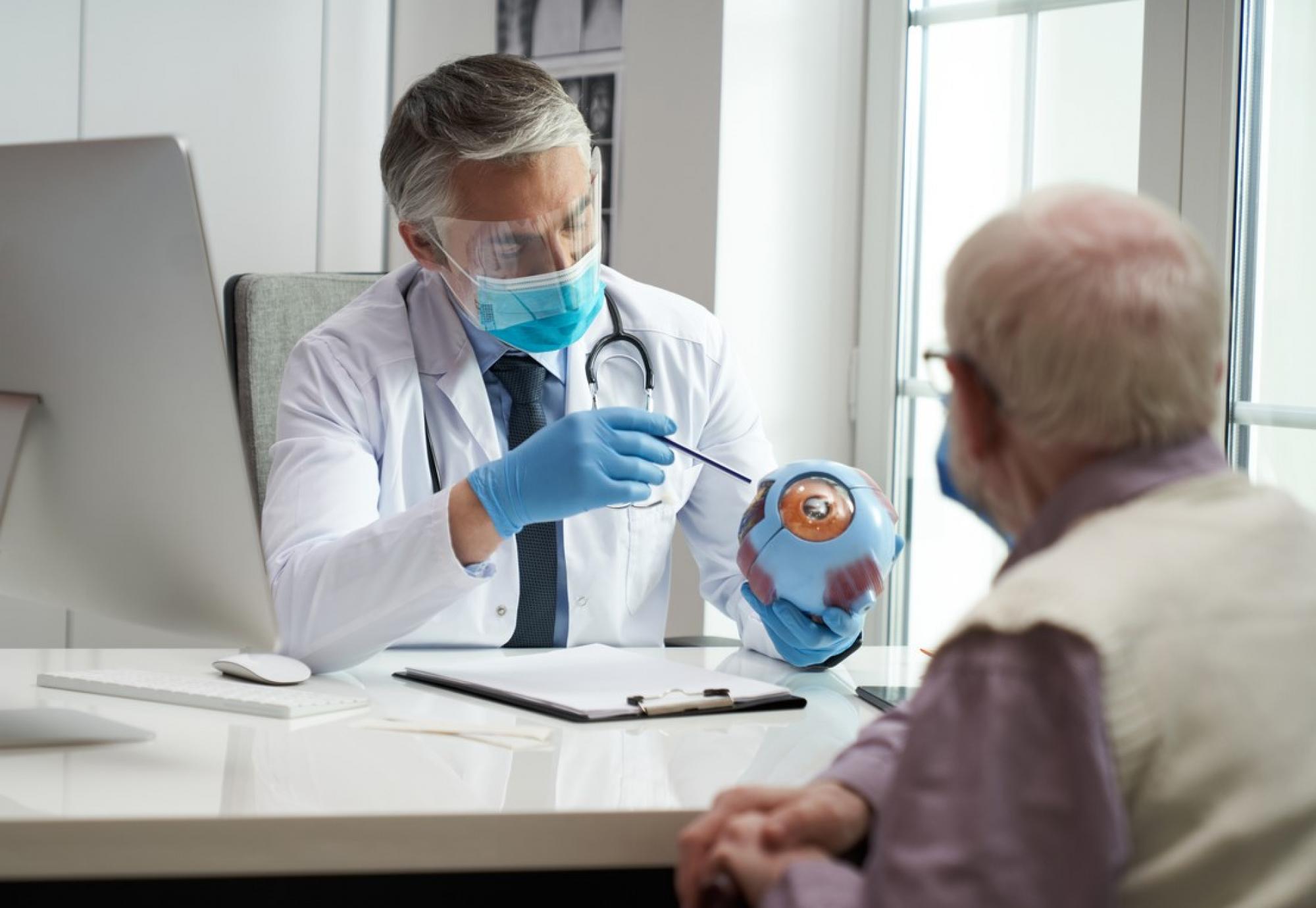The University Hospitals of Morecambe Bay (UHMBT) NHS Foundation Trust, has received a £90,000 investment in new diagnostic equipment to improve the care of patients with eye problems.
The imaging machine was purchased by the trust to improve the diagnosis and treatment of patients from across North Lancashire and South Cumbria who attend the Ophthalmology Department’s Macular Unit, at Westmorland General Hospital (WGH) in Kendal.
The retinal imaging technology is on a par with specialist centres at hospital trusts in large cities such as Liverpool, Manchester and London.
Staff within the Ophthalmology Department have already seen benefits from using the new machine, and have identified an even greater number of conditions such as cancer and macular degeneration sooner.
The Ophthalmology Team sees 60 to 70 patients per day and the machine provides the opportunity for them see to see and treat even more people in a timely manner.
Linda Williams, Manager of the Ophthalmology Departments at WGH and the Royal Lancaster Infirmary (RLI), said: “The Optos machine is fantastic – I can’t praise it highly enough. It’s very user-friendly and gives a greatly enhanced picture of what is going on with a person’s eyes.
“The Optos machine is patient-friendly and child-friendly. It’s already improving our service as we are able to see more patients sooner. The machine doesn’t require staff and patients to be face-to-face so everyone can keep a safe distance. This is proving to be very helpful during the Covid-19 pandemic.”
The machine enables the team to take pictures of the back of the eye and identify any problems using a technique called ‘fundus fluorescein angiography’. This is a common procedure that is performed to gather information about the condition of the back of the eye.
A small amount of yellow fluorescein dye is injected into a vein in a patient’s hand or arm. The dye then travels to the eye where it highlights the blood vessels and any problems can be identified.
A single scan can take a detailed picture of the back of the eye, the surface of the eye and peripheral areas.
Ms Williams explained: “People can have various conditions affecting their eyes. For example, a person can have a mole at the back of their eye and not know about it.
“The Optos machine can detect melanomas at the back of the eye and this can be life-saving. In one recent clinic we found three melanomas in just one day. One scan can give us all of the information we need so patients don’t necessarily have to come back for repeat scans.”
Patients are usually referred to the Ophthalmology Department through opticians, GPs and occasionally through internal referrals.
Ms Williams has put a comprehensive training programme in place so that Clinical Support Workers (CSWs) at the trust can become Ophthalmic Practitioners. This has allowed doctors and nurses to perform other clinical work.
Ms Williams said: “We do a lot of fundraising in our team and we are always trying to make improvements. We’re very well known for our fundraising cake sales!
“Some of our patients need to come to see us on a regular basis and they become like part of the family. We know each and every patient and we have really great feedback from them.
“Our team is hard-working and we have a great relationship with each other. It’s a brilliant team; everyone works so well together.”



















